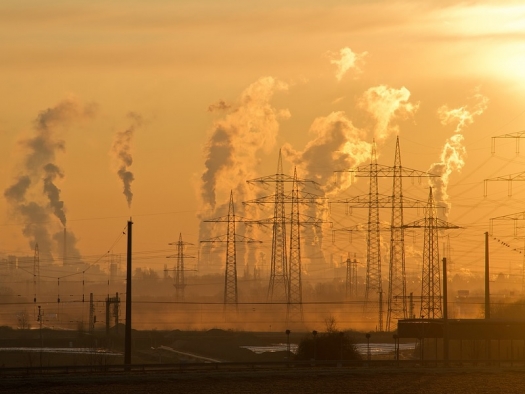AirPollutionSmokestacksSunrise.jpg

Photo by Ralf Vetterle / pixabay.com
Greenhouse gas emissions from processes such as electricity generation and distribution will cause increased damage to society in future years.
Abstract
Life cycle assessment (LCA) is a fundamental tool used to evaluate the environmental impact of products.
Standard life cycle assessment methodology ignores the impact of greenhouse gases relative to when they are emitted. In this paper, we present a method for leveraging the social cost of greenhouse gases to account for the temporal impacts of emissions in life cycle assessment and techno-economics.
To demonstrate, we use this method to analyze the present value of the monetized impacts of emissions across multiple electricity generation technologies.
Results show that accounting for time increases the present value across all but one of the technologies considered. Carbon intensive technologies show the highest increase, with coal rising between 26% and 62% depending on social cost scenario.
Additionally, we demonstrate a second method that combines temporally resolved greenhouse gas emissions with techno-economic analysis. Considering temporal impacts of emissions within techno-economic analysis increases the levelized cost of electricity (LCOE) across all technologies considered. Carbon intensive technologies increase significantly, with the LCOE from coal rising between 37% and 263% depending on the social cost scenario.
The proposed methods show that temporal resolution in life cycle assessment is critical for comparing the monetized impacts of greenhouse gas emissions across technologies.
Full text
Time Value of Greenhouse Gas Emissions in Life Cycle Assessment and Techno-Economic Analysis is published in Environmental Science & Technology 2019 53 (10), 6073-6080. DOI: 10.1021/acs.est.9b00514.
A first
Evan Sproul, Jay Barlow, and Dr. Jason Quinn are the first to fill a gap in sustainability modeling according to Novel research accounts for future impacts of greenhouse gas emissions by Sona Srinarayana at Colorado State University.
“By accounting for time in their new LCA [Life Cycle Assessment] method, the team can assess impacts of greenhouse gas emissions over the next 30 years, determining that 1 kg of carbon has a higher impact in the future than the present day, due to changes in atmospheric composition and economic considerations,” Srinarayana reports.
“What we are doing is changing the way people think about carbon accounting. It has the potential to do the same thing the microbrewery industry did to the beer world or organic did to the food world,” said Dr. Quinn.




